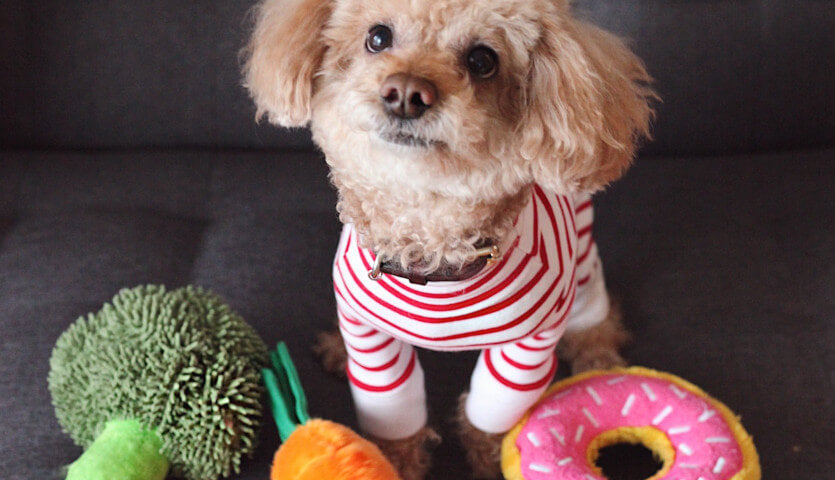When delving into the world of canine nutrition, the basics generally hold true: your dog, like you, has to strike a balance between fats, carbohydrates, and protein. Beyond that, it gets more complicated. The American Veterinary Medical Association reports that over one-third of dogs receive a dietary supplement, reflecting increasing concern over meeting our dogs’ dietary needs.
Vitamins are organic compounds necessary for your dog’s health and life, most of which can be obtained through food. Commercial dog food that meets AAFCO standards is formulated to meet your dog’s daily nutritional requirements, but some dogs may have different needs or be unable to absorb nutrients as efficiently. Deley Naturals aims to simplify the process for you through their 15 in 1 Multivitamin Chews. The chews contain 15 nutrients that support healthy immune function, improve skin and coat health, aid in digestion, and provide long-term benefits for your dog’s hips and joints.
Fat-Soluble Vitamins: Vitamins A, D, and E
Fat-soluble vitamins get broken down and absorbed in your dog’s intestines, where they get stored for later use.
- Vitamin A: Promotes and maintains healthy vision. The retinol in vitamin A can protect the lens and cells of the eye from the natural oxidative damage caused by aging and environment.
- Vitamin D: Helps your dog absorb calcium. Taken in sufficient quantities, vitamin D supports the maintenance of bone density as your dog ages. Adequate amounts of vitamin D is also believed to play a role in maintaining calm, balanced behavior.
- Vitamin E: Supports skin and coat. Vitamin E serves as a unique antioxidant for your dog’s skin. Your dog’s vitamin E stores deplete as they age, causing more skin irritation and dryness.
Common sources of fat-soluble vitamins include: fatty fish/fish oil, liver, beef, dairy products, eggs, and dark, leafy greens.
Water-Soluble Vitamins: Vitamins C and B-Complex
Water-soluble vitamins play a crucial role in the development and maintenance of bones, teeth, and connective tissues. Like the name suggests, they dissolve in water and get flushed out of your dog’s system. Your dog regularly needs to replenish their water-soluble vitamins through diet or supplements.
- Vitamin C: Reduces inflammation and cognitive aging. Your dog produces vitamin C naturally and, unless recommended by a vet, does not need it supplemented.
- Vitamins B-complex: Maintains healthy tissue, promotes healthy nerve function, supports metabolic balance and brain function. B vitamins play a role in virtually every biological process in your dog’s body. Supplementing B-complex vitamins can reduce stress and anxiety in your dog while improving mental health and physical wellness.
Vitamins C and B-complex can be found in organ meats such as liver, as well as fruits, vegetables, and dairy products.
Essential Minerals
The two big essential minerals that your dog needs are calcium and phosphorus. Your dog needs approximately equal amounts of both in their diet for proper bone growth, kidney function, cardiovascular support, and other important biological processes. If that sounds complicated, don’t worry–raw, meaty animal bones contain virtually perfect amounts, explaining why dogs love to eat them.
However, macrominerals like calcium and phosphorus rely on the presence of trace minerals to function properly. Microminerals are found in everyday food items like meat, fish, vegetables, eggs, whole grains, and dairy products.
- Iron: Helps create red blood cells and hemoglobin, transports oxygen, and plays a role in enzymatic function.
- Selenium: Has antioxidant benefits and can prevent oxidative damage caused by aging and inflammation.
- Zinc: Needed for immune system function and thyroid function.
- Copper: Helps your dog absorb iron more efficiently.
- Manganese: Builds collagen, protecting your dog’s joints.



Leave a comment